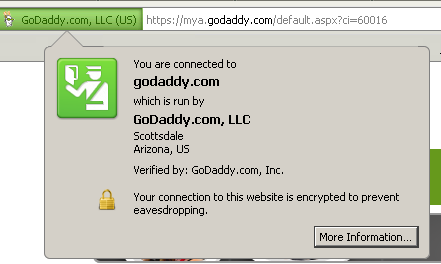Making Money Online
If you're even remotely considering making money from your website, the first thing to consider is what type of website you have: commercial or personal.
- Commercial sites are generally those that engage in some type of e-commerce (buying and selling things online). Say, for example, that you have the coolest thingymabob anyone has ever seen. It's so cool, in fact, you're going to sell it online. That thingymabob makes your site commercial.
- Personal websites are, well, personal. Let's say you're currently in school to become a Web designer. (Congratulations!) As such, you have a website where you can post your résumé and some of your work. This type of website, by nature, has a much more personal agenda.
OK, let's talk about the nitty gritty — making money online, whether you have a commercial website or a personal one.
Commercial Websites
The basics of commercial websites are the same whether you're selling widgets or whatzits. For nearly all e-commerce websites, you need at least these four items:
- A shopping cart
- A merchant account
- An SSL certificate
Once you've chosen your domain name, set up an email account for your website. This not only makes your company look legitimate to customers, it also helps your company stand out.
For a refresher on using email to enhance your reputation online, see Building Your Online Brand.
Shopping Cart
Because you want customers to purchase your goods online, you'll need an online storefront. But, how do you build one?
There are many options available to you when you decide to create an online shopping cart. The type of cart you select depends on your needs. Generally speaking, all of them should let you design the look of your store, add products to your catalog, and select shipping, payment, and tax options. Go online and search different carts to determine what's best for your needs.
Merchant Accounts
Being a small business doesn't mean you can't accept credit cards like the big guys. While you can use a third-party service to route your customers' purchases, you can also add even more credibility to your business with a merchant account.
Merchant accounts let you accept all the major credit, debit and gift cards for your products. Again, you'll need to decide which merchant provider and plan you want to go with. Some merchant providers allow your customers to purchase your products directly on your website. Others, like PayPal®, require your customers to click a link and use its website to make purchases.
When you have your merchant account squared away, you'll need to decide if you need a business license, if you haven't already. To do this, you'll need to contact your state's local business license office to determine how you need to proceed. For more information on specific states, check the U.S. Small Business Administration's website.
Chances are you'll need to collect some sort of tax on your goods, so you'll want to make sure you contact your state to ensure that you're filing correctly.
If you need to ship your products, most shopping carts also let you set up the dimensions of the box that you're shipping the thingymabob in, and then it calculates the cost for you. If your shopping cart doesn't do this, consider including shipping costs in your pricing.
SSL Certificate
The first thing most savvy customers look for when they make a purchase online is an SSL (Secure Sockets Layer) certificate. SSL certificates are digital certificates that encrypt the information your customers send when they purchase products or fill out forms on your website.
There's a number of different ways to locate someone's SSL certificate. But, generally speaking, if you look in the address bar, the site will have https:// instead of just http://.
Online security is incredibly important these days. And it should be. You want your customers to feel safe when they go to your website. If you have an online ordering form, storefront, or both, you'll want an SSL certificate to ensure your customers' transactions are secure.
You have to decide which type of SSL certificate you want, Standard or Premium.
A Standard SSL certificate shows up as https:// in the address bar and only validates the domain associated with your storefront. However, if you want your customers to feel more comfortable with you, you should consider a Premium SSL certificate.
A Premium SSL certificate shows up as https:// in the address bar, validates the domain name you have associated with your storefront, and looks at all of the records for your company to ensure that your company is legitimate. When you have a premium SSL certificate, users see a green box that displays in their browser's address bar. This indicates to them that your site is secure.

While deciding what you need for your storefront can be confusing at times, know that you're even closer to your goal of having a prestigious online presence.
Personal Websites
Generally speaking, if you are trying to create a personal website, usually one page will accomplish your goals. In that case, you can begin by purchasing a domain name.
Once you have your domain, you should set up a one-page website for your personal information. If you need more than just a page on your website, remember that you have plenty of choices about the hosting platform you select. Go back to Selecting Your Hosting Platform for a refresher.
If you decide that you don't want a website for your domain name, that's OK, too. You might want to own it to protect your personal brand later on. Many people register a domain name and set up email so they can have a professional email address to include in their resumes. Personalized email addresses can stand out in a crowd.
But, you'll need to decide if you want to leave a parked page stating that someone owns the domain name, or do something else.
There are a number of different ways that a personal website can help you build your online presence and generate income through options like:
- Ad Parking
- Affiliate Programs
Ad Parking
We consider domain names to be "parked" if they currently don't have any website content on them. Basically, you lease the land (domain name) and you let another company place ads on your plot instead of building a house (website). Typically, the company facilitating the ads split the revenue with you. If you don't have an immediate plan for the domain name, it's a great way to make back some of its cost.
Affiliate Programs
Magazines and television networks aren't the only places to buy advertising. If you have a website, you can make money by adding advertisements. If you participate in an affiliate program, you can earn a commission when visitors purchase certain products. This works especially well if you have an established audience through a blog.
